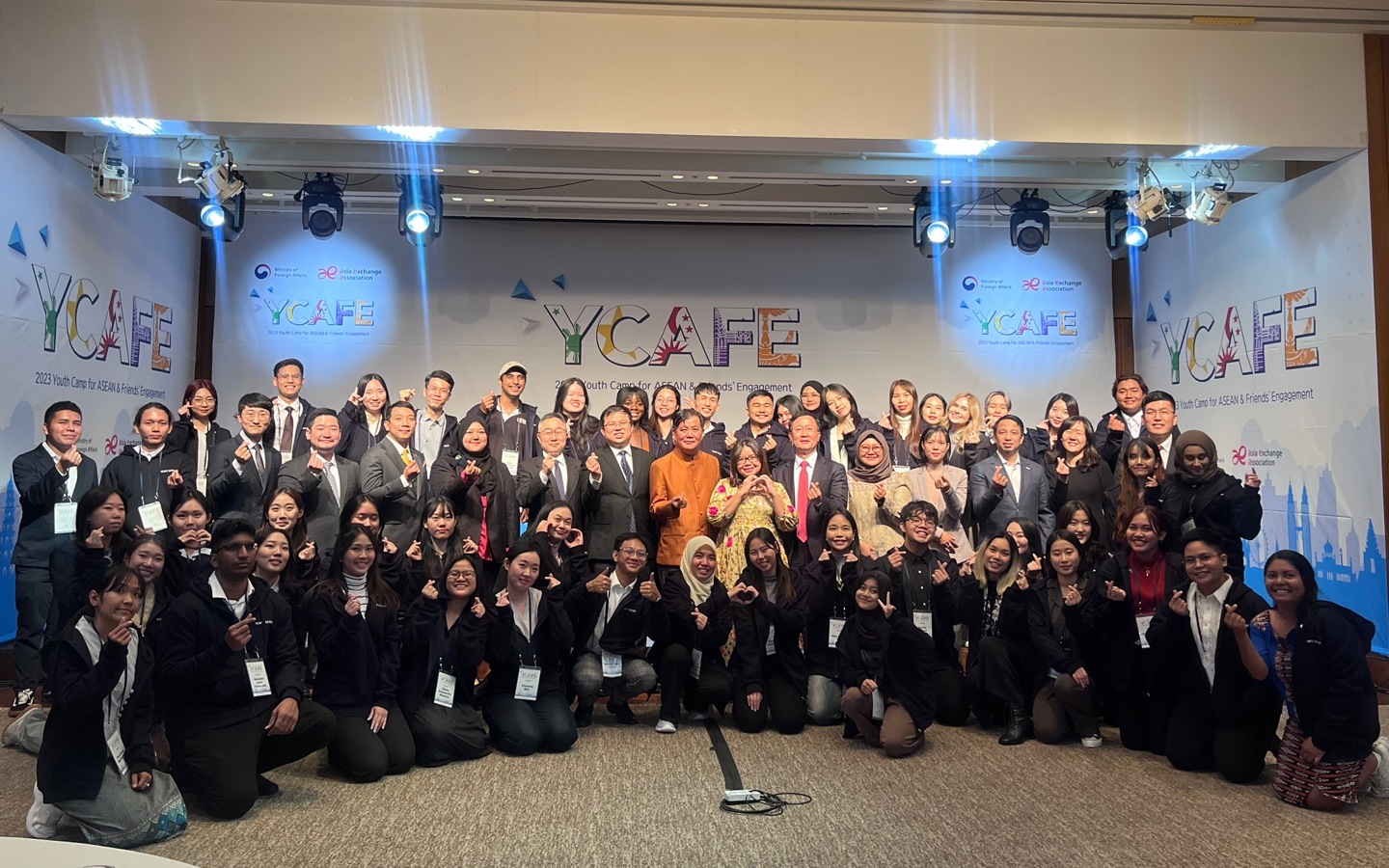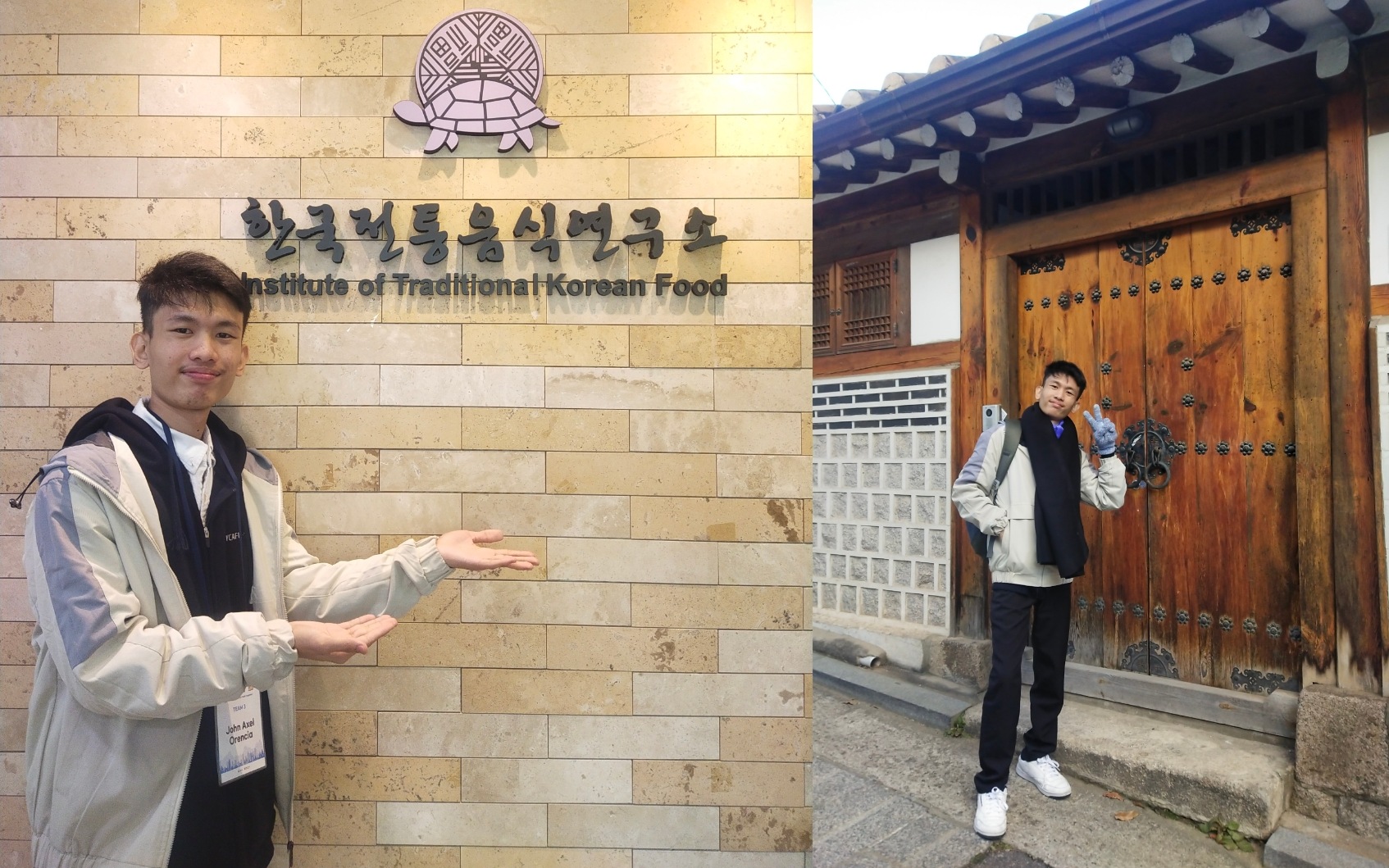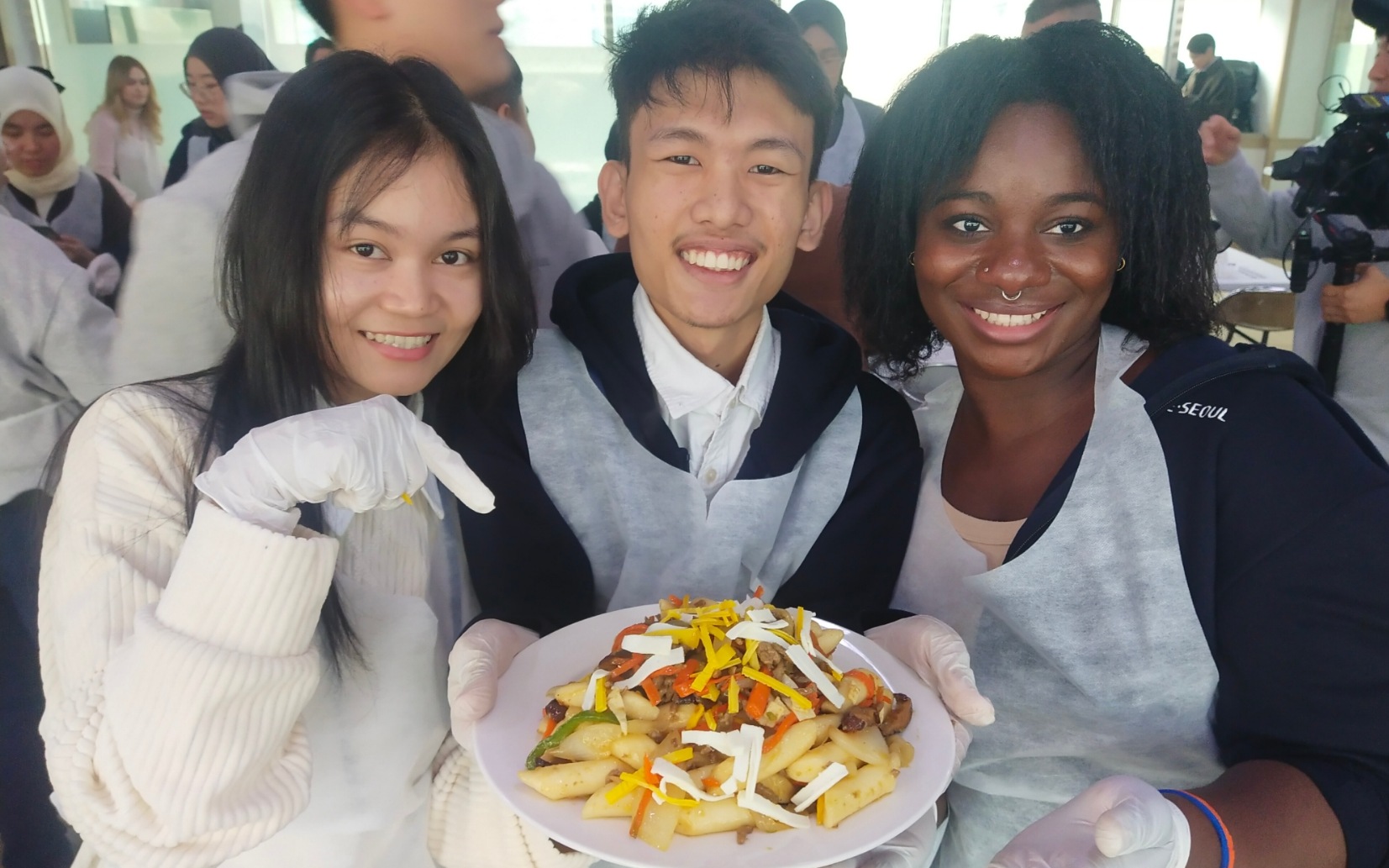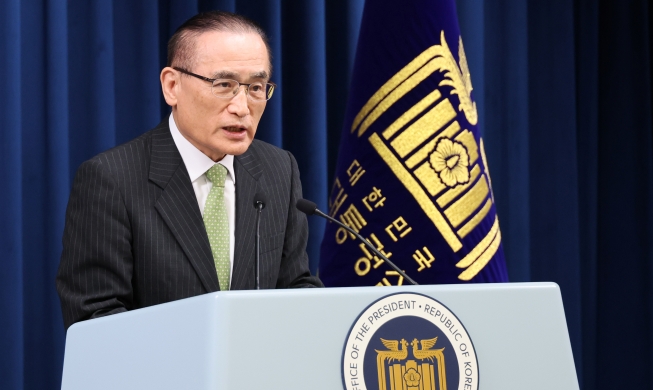- 한국어
- English
- 日本語
- 中文
- العربية
- Español
- Français
- Deutsch
- Pусский
- Tiếng Việt
- Indonesian
By Honorary Reporter John Axel Orencia from Philippines
The Ministry of Foreign Affairs in Seoul and the Asia Exchange Association from Nov. 27 to Dec. 2 held the second Youth Camp for ASEAN (Association of Southeast Asian Nations) and Friends Engagement in the Korean capital. This year's edition attracted 52 youth leaders from ASEAN, Korea and the U.S. to raise awareness of the challenges facing the Indo-Pacific region and identify youth's role in promoting peace and prosperity in the area.

Delegates at the Youth Camp for ASEAN and Friends' Engagement on Nov. 27 pose for a group photo at the opening ceremony held at the Shilla Hotel in Seoul. (Asia Exchange Association)
The camp featured lectures, workshops, manifesto drafting, field trips and cultural tours. I was able to join thanks to my experience as a volunteer youth advocate for Korea-ASEAN relations. The opening ceremony and welcoming dinner were held at the Shilla Hotel attended by high-ranking officials from Korea, ASEAN and the U.S.

The Institute of Traditional Korean Food held a Korean cooking workshop during the camp. (John Axel Orencia)
The cultural tours included a cooking workshop hosted by the Institute of Traditional Korean Food, where participants made for lunch gungjung tteokbokki, (royal court rice cake). Our next stop was the Tteok (Rice Cake) Museum, where we learned about the snack. We also visited Gyeongbokgung Palace and Bukchon Hanok Village in Seoul and ASEAN Culture House in Busan.
Despite our diverse backgrounds, participants formed friendships by working together in cultural exchange, teamwork activities and discussions on global issues. We recognized our common aspirations including the promotion of peace, sustainability and equality.
 Camp participants experience Korea's culinary treasures. (John Axel Orencia)
Camp participants experience Korea's culinary treasures. (John Axel Orencia)Participants immersed themselves in Korean cuisine. We had lunch and dinner at Korean restaurants as part of the itinerary and tried bibimbap (rice mixed with meat, vegetables and red pepper paste), gungjung tteokbokki and kimchi. Additionally, the Korean delegates introduced us to street food such as eomuk (fish cake) and deli manjoo (corn-shaped bread).
The camp included lectures and workshops on diplomatic document writing led by qualified individuals from both Korea and ASEAN. The workshop covered a range of aspects related to Korea-ASEAN relations, spanning politics, economics, society and culture. Participants critically examined perspectives on these ties and the U.S. role, improving analytical skills and fostering teamwork.
The manifestos presented by 10 groups at the farewell dinner and closing ceremony in Banyan Tree Hotel covered three pillars: freedom (social and cultural concerns), peace (security issues) and prosperity (economic matters). Each delegate received a certificate of participation from the ministry.
Thus I found the camp a transformative experience that fostered cross-cultural understanding and collaboration among youth leaders.
msjeon22@korea.kr
*This article is written by a Korea.net Honorary Reporter. Our group of Honorary Reporters are from all around the world, and they share with Korea.net their love and passion for all things Korean.
